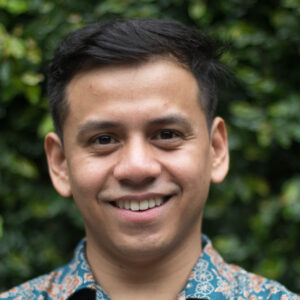April 7 is the World Health Day, which marks the founding of the World Health Organization (WHO) in1948, 75 years ago. This year’s theme is ‘Health for All’. In conjunction with World Health Day, this blog post is dedicated to showcasing several open-data products related to health. This is to show the potential of open data for addressing social concerns, in this case, on health.
Helping citizens choose clean food establishments
Alim’confiance is an application developed by the French Ministry of Agriculture. It provides health check information on food establishments throughout the food chain including farms, seafood and freshwater establishments, abattoirs, supermarkets, and restaurants. There are four levels of hygiene extracted from the health checks inspection reports (Excellent, Satisfactory, Needs Improvement and Needs Urgent Attention). Every day, new results are added and remain visible for a year. The application is available on the web browser, Apple Store, Google Play, and Windows Store. With the application, citizens can ensure the safety of the food they buy from food establishments. At the same time, it may also encourage food establishments to carry out good hygienic practices knowing that the information of health checks is visible to all.
Supporting people with allergies
PASYFO, which stands for Personalized Allergy Symptom Forecasting System, is an application developed by an international team of scientists and specialists from Vilnius University Šiauliai Academy, University of Latvia, Medical University of Vienna, and the Finnish Meteorological Institute. The application is available in the web browser, Apple Store, and Google Play. The application is developed based on earth observation data provided by Copernicus With the application, users can obtain personalised information on air quality and pollen levels forecasts in different regions in Lithuania and Latvia. Forecasts of symptoms are based on several groups: nose, eyes, lungs, and health status. The application facilitates people with allergies to make decisions on their daily activities.
Making health costs transparent
Clear Health Costs is a platform for people who are based in the US to know how much procedures or supplies provided by different health providers cost. The platform is developed by a journalism company from New York City to bring transparency to the healthcare marketplace. The data is obtained through crowdsourcing, shoe-leather journalism, data journalism, and investigative reporting. With the platform, users can compare medical procedures or supplies cost across different providers and make an informed decision on which provider to choose. They can also share the cost of their medical procedures or supplies for the benefit of other users. The mission of the platform is to protect consumers as well as to drive policy actions.
Leveraging open data for societal benefit
While open data, or any technology for that matter, is not a silver bullet in addressing social concerns, open data products showcased above are examples of how open data can be leveraged for the benefit of society. Close collaborations between open data practitioners and subject matter experts from specific domains (e.g. health, education, transportation) are necessary to ensure open data have positive and meaningful impacts on society. On top of that, the right policies, strategies, and business models are required to build open data ecosystems that are inclusive, user-driven, circular, and skills- based – this is indeed the mission of ODECO. Author:
Ashraf Shaharudin
Delft University of Technology, Netherlands



